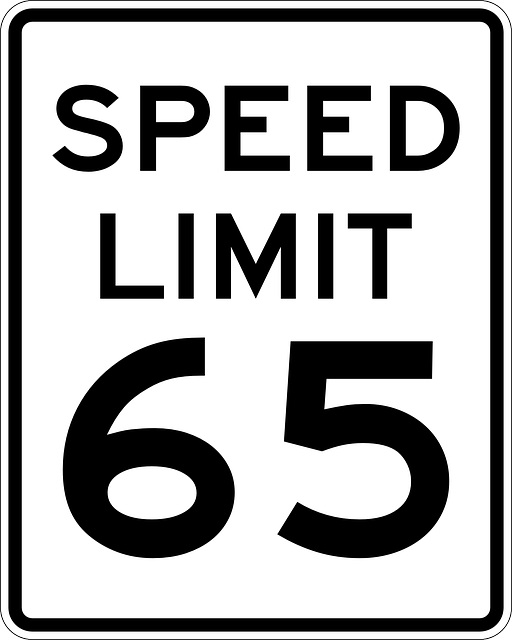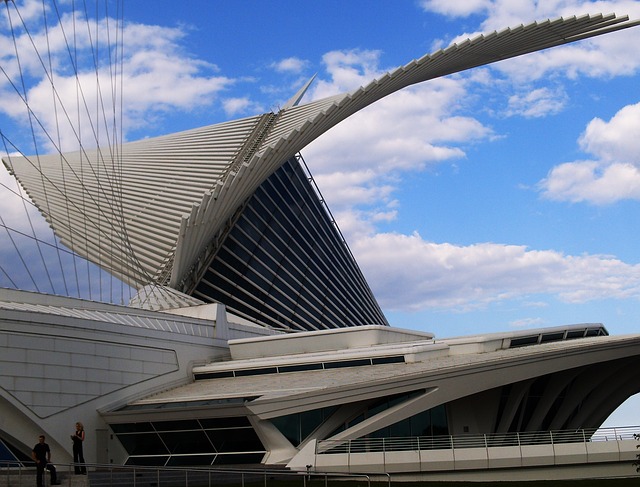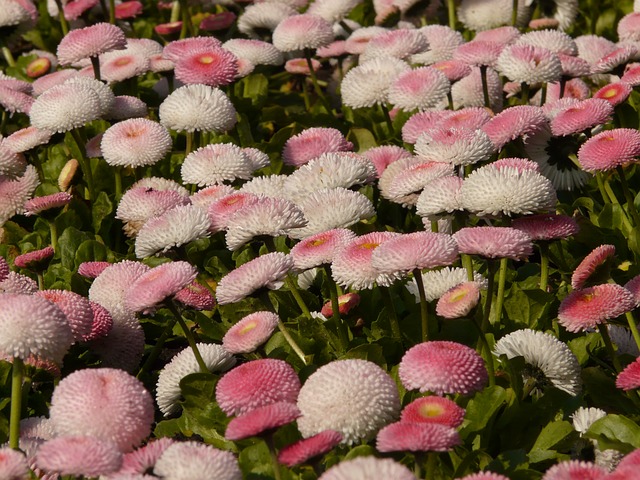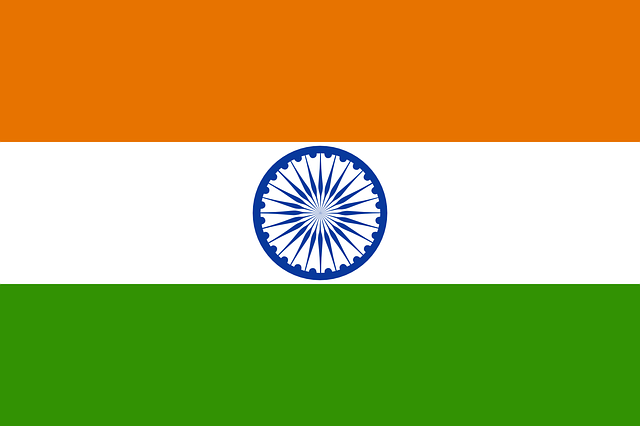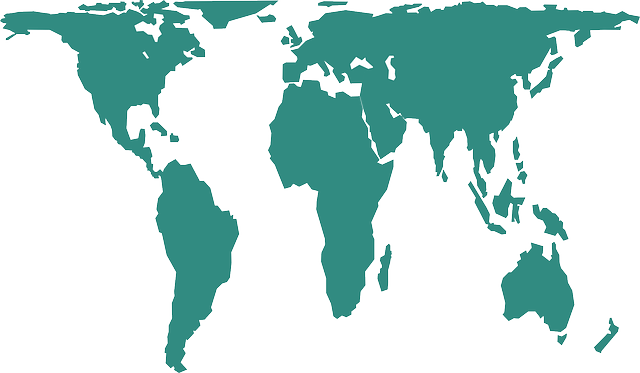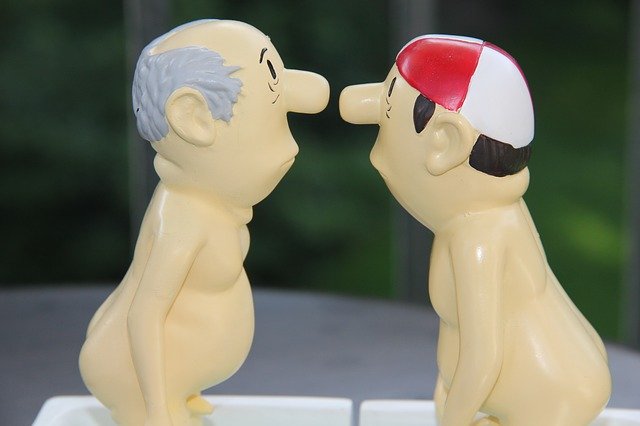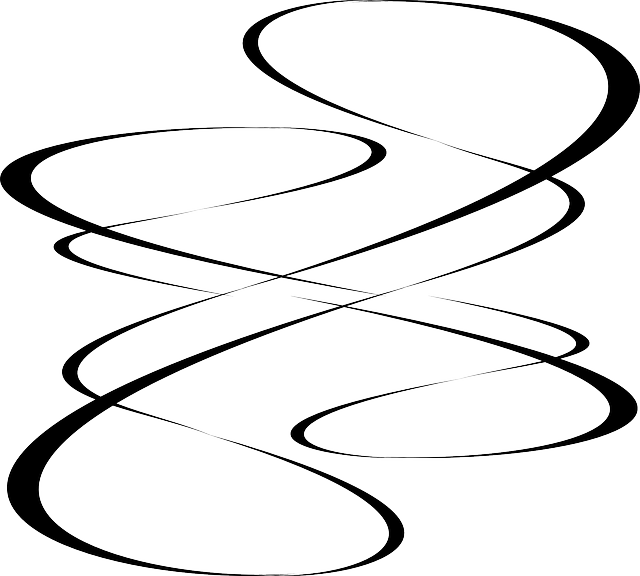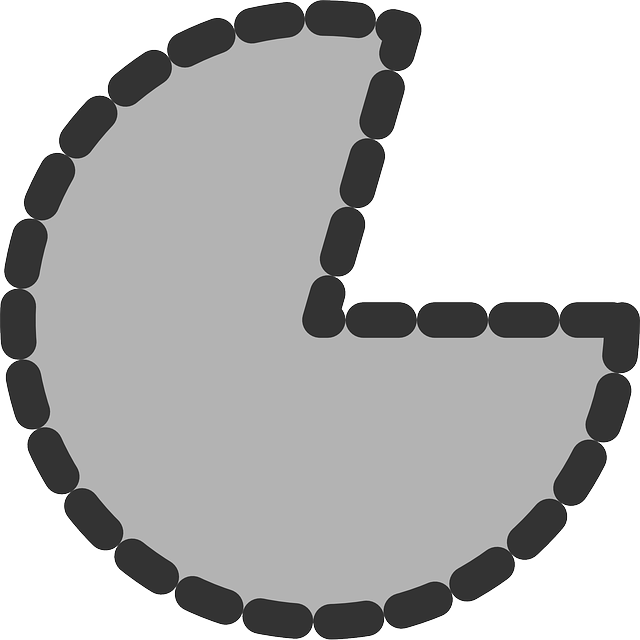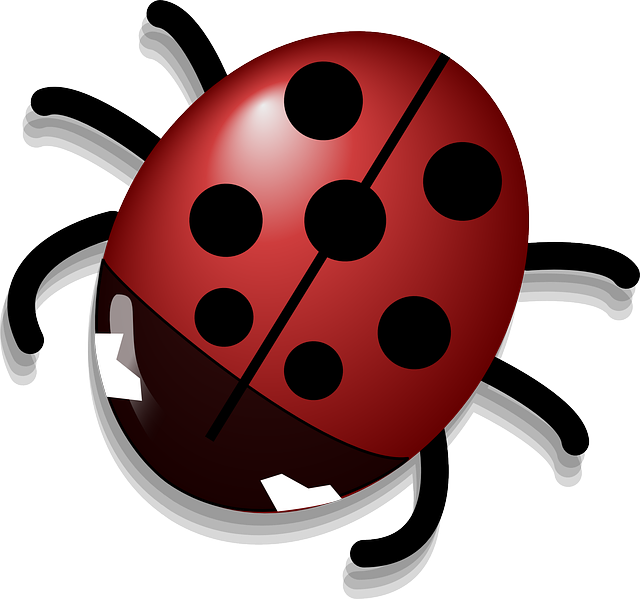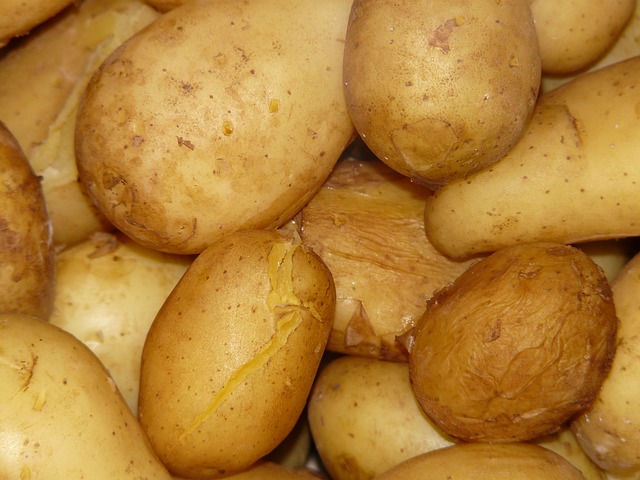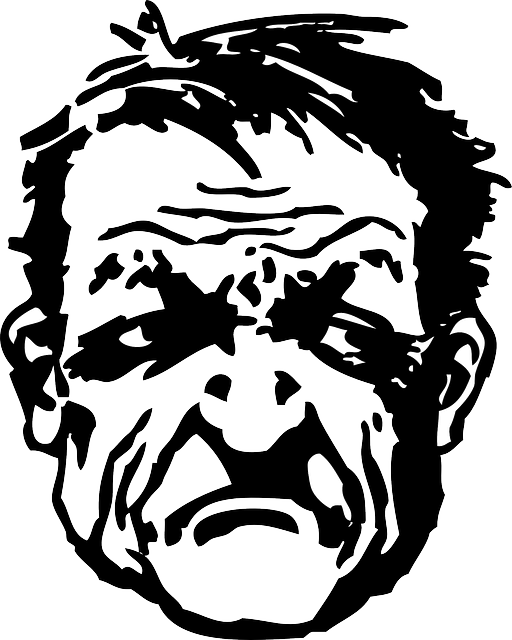قائمة الشخصيات الأسطورية اليونانية
|
الديانة اليونانية القديمة | |
| مذاهب أساسية | |
|
تعدد الآلهة · ميثولوجية · Hubris Orthopraxy · Reciprocity · Virtue | |
| الطقوس | |
|
أمفيدروميا · ياترومانتس | |
| آلهة | |
|
الاولمپيون الاثنى عشر: آرس · Artemis · Aphrodite · أبولو أثينا · دميتر · هيرا · هستيا هرمس · هفستس · پوسايدون · زيوس --- Primordial deities: Aether · Chaos · خرونوس · إربوس گايا · همرا · Nyx · ترتاروس · اورانوس --- Lesser gods: ديونيسس · إروس · هبه · Hecate · هليوس Herakles · إيريس · سلنه · پان · Nike | |
| نصوص | |
|
Argonautica · إلياذة · اوديسة Theogony · الأعمال والأيام | |
| انظر أيضا: | |
|
انزواء الشرك الهليني Hellenic Polytheistic Reconstructionism Supreme Council of Ethnikoi Hellenes |
هذه قائمة شخصيات الأسطورية اليونانية. انظر أيضا شجرة عائلة الآلهة اليونانية وقائمة المخلوقات الأسطورية اليونانية. ولقائمة الآلهة حسب الثقافة، انظر قائمة الآلهة.
غير بشرية
آلهة اولمپية
| الاسم اليوناني | الاسم العربي | الوصف |
|---|---|---|
| Aφροδίτη (Aphroditē) | أفروديت | Goddess of love, lust, beauty, seduction and pleasure. Although married to Hephaestus she had many lovers, most notably Ares. She was depicted as a beautiful woman usually accompanied by her son Eros. Her symbols include the dove, apple, scallop shell and myrtle wreath. |
| Aπόλλων (Apollō) | أپولو | God of music, healing, plague, prophecies, poetry, and archery; associated with light, truth and the sun. He is Artemis's twin brother, and son of Zeus and Leto. He was depicted as a handsome, beardless youth with long hair and various attributes including a laurel wreath, bow and quiver, raven, and lyre. |
| Άρης (Arēs) | آرس | God of war, bloodlust, violence, manly courage, and civil order. The son of Zeus and Hera, he was depicted as either a mature, bearded warrior dressed in battle arms, or a nude beardless youth with helm and spear. His attributes are golden armour and a bronze-tipped spear, and his sacred animals are the eagle owl, the vulture and the venomous snake. |
| Άρτεμις (Artemis) | Artemis | Virgin goddess of the hunt, wilderness, wild animals, childbirth and plague. In later times she became associated with the moon. She is the daughter of Zeus and Leto, and twin sister of Apollo. In art she was usually depicted as a young woman dressed in a short knee-length chiton and equipped with a hunting bow and a quiver of arrows. In addition to the bow, her attributes include hunting spears, animal pelts, deer and other wild animals. |
| Αθηνά (Athēna) | أثينا | Virgin goddess of wisdom, warfare, strategy, heroic endeavour, handicrafts and reason. The daughter of Zeus and Metis, she was born from Zeus's head fully-formed and armoured. She was depicted crowned with a crested helm, armed with shield and spear, and wearing the snake-trimmed aegis cloak adorned with the head of the Gorgon. Her symbols include the aegis, the owl and the olive tree. |
| Δήμητρα (Dēmētra) | Demeter | Goddess of fertility, agriculture, horticulture, grain and harvest. Demeter is a daughter of Kronos and Rhea and sister of Zeus, by whom she bore Persephone. She was depicted as a mature woman, often crowned and holding sheafs of wheat and a torch. Her symbols are the Cornucopia (horn of plenty), wheat-ears, the winged serpent and the lotus staff. |
| Διόνυσος (Dionysus) | Dionysus | God of wine, parties and festivals, madness, drunkenness and pleasure. He was depicted in art as either an older bearded god or a pretty effeminate, long-haired youth. His attributes include the thyrsus (a pinecone-tipped staff), drinking cup, grape vine and a crown of ivy. A later addition to the Olympians, in some accounts he replaced Hestia. |
| Έρως (Eros) | Eros | Eros was the god of love, sexual intercourse, cupids, desire and pleasure. Eros was the son of the goddess of love-Aphrodite-and the god of war-Ares. He was often shown with wings and arrows and with his mother. He had four brothers and one sister. He was married to Psyche and had two daughters: Hedone and Voluptas. His symbols were Bow, Arrows, Candles, Hearts, Cupids, Wings and Kisses. |
| ᾍδης (Hades) | Hades | King of the Underworld and god of death, the dead, and the hidden wealth of the Earth. His consort is Persephone and his attributes are the key of Hades, the Helm of Darkness, and the three-headed dog, Cerberus. Despite being the son of Kronos and Rhea and the elder brother of Zeus, he is only rarely listed among the Olympians. |
| Ήφαιστος (Hēphaistos) | Hephaestus | Crippled god of fire, metalworking, stonemasonry, sculpture and volcanism. The son of Hera by parthenogenesis, he is the smith of the gods and the husband of the adulterous Aphrodite. He was usually depicted as a bearded man holding hammer and tongs—the tools of a smith—and riding a donkey. His symbols are the hammer, tongs and anvil. |
| Ήρα (Hēra) | Hera | Queen of Heaven and goddess of marriage, women, childbirth, heirs, kings and empires. She is the daughter of Cronus and Rhea. She was usually depicted as a beautiful woman wearing a crown and holding a royal, lotus-tipped staff. Her symbols are the diadem, lotus-staff, peacock, cuckoo and pomegranate. |
| Ερμής (Hērmēs) | Hermes | God of travel, messengers, trade, thievery, cunning wiles, language, writing, diplomacy, athletics, and animal husbandry. He is the messenger of the gods, a psychopomp who leads the souls of the dead into Hades' realm, and the son of Zeus and Maia. He was depicted either as a handsome and athletic beardless youth, or as an older bearded man. His attributes include the herald's wand or caduceus, winged sandals, and a traveler's cap. |
| Ἑστία (Hestia) | Hestia | Virgin goddess of the hearth, home and cooking. She is a daughter of Rhea and Cronus and sister of Zeus. She was depicted as a modestly veiled woman, whose symbols are the hearth and kettle. In some accounts, she gave up her seat as one of the Twelve Olympians to tend to the sacred flame on Mount Olympus for Dionysus. |
| Ποσειδῶν (Poseidon) | Poseidon | God of the sea, rivers, floods, droughts, earthquakes and horses; known as the "Earth Shaker" or "Storm Bringer". He is a son of Kronos and Rhea and brother to Zeus and Hades. In classical artwork he was depicted as a mature man of sturdy build with a dark beard, and holding a trident. His attributes are the trident, dolphins and horses. |
| Ζεύς (Zeus) | زيوس | The king of the gods, the ruler of Mount Olympus and the god of the sky, weather, thunder, law, order and fate. He is the youngest son of Kronos and Rhea, whom he overthrew, and brother-husband to Hera. In artwork, he was depicted as a regal man, mature with sturdy figure and dark beard. His symbols are the thunderbolt, royal sceptre, and eagle. |
Protogenoi (primordial deities)
| Greek name | English name | Description |
|---|---|---|
| Αιθήρ (Aithēr) | Aether | God of the upper air. |
| Ἀνάγκη (Anankê) | Ananke | Goddess of inevitability, compulsion and necessity. |
| Έρεβος (Erebos) | Erebos | God of darkness and shadow. |
| Γαία (Gaia) | گايا or Gaea | Goddess of the Earth (Mother Earth); mother of the Titans. |
| Ημέρα (Émera) | Hemera | Goddess of daylight and the sun. |
| Χάος (Khaos) | Chaos | The nothingness from which all else sprang. |
| Χρόνος (Khronos) | Chronos | The Keeper of Time. Not to be confused with the Titan Cronus, the father of Zeus. |
| αἱ Nῆσοι (Nêsoi) | The Nesoi | Goddesses of the islands. |
| Νύξ (Nyx) | Nyx | Goddess of night. She is also the only being from which Zeus turned when her son Hypnos, who had angered Zeus, hid behind her. |
| Ουρανός (Ouranos) | Uranus | God of the heavens (Father Sky); father of the Titans. He banished his children, the Cyclopes and the Hecatonchires, to the underworld because they did not please him. |
| Ούρος (Ourea) | The Ourea | Gods of mountains. |
| Φάνης (Phanês) | Phanes | God of procreation in the Orphic tradition. |
| Πόντος (Pontos) | Pontos | God of the sea, father of the fish and other sea creatures. |
| Τάρταρος (Tartaros) | Tartarus | The darkest, deepest part of the underworld. |
| Θάλασσα (Thalassa) | Thalassa | Spirit of the sea and consort of Pontos. |
تيتان
| Greek name | English name | Description |
|---|---|---|
| الجبابرة الإثنى عشر | ||
| Ὑπερίων (Hyperiôn) | Hyperion | God of light. With Theia, he is the father of Helios (the sun), Selene (the moon) and Eos (the dawn). |
| Ἰαπετός (Iapetos) | Iapetos | God of mortality and father of Prometheus, Epimetheus and Atlas. |
| Κοῖος (Koios) | Coeus | God of intellect and the axis of heaven around which the constellations revolved. |
| Κρεῖος (Kriôs) | Crius | The least individualized of the Twelve Titans, he is the father of Astraios, Pallas and Perses. |
| Κρόνος (Krónos) | كرونوس | The leader of the Titans, who overthrew his father Ouranos only to be overthrown in turn by his son, Zeus. |
| Mνημοσύνη (Mnêmosynê) | Mnemosyne | Goddess of memory and remembrance, and mother of the Nine Muses. |
| Ὠκεανός (Ôkeanos) | أوقيانوس | God of the Earth-encircling river Oceanus, the font of all the Earth's fresh-water. |
| Φοίβη (Phoibê) | Phoebe | Goddess of the "bright" intellect and prophecy, and consort of Koios. |
| Ῥέα (Rheia) | ريا | Goddess of female fertility, motherhood, and generation. She is the sister and consort of Cronus, and mother of Zeus, Hades, Poseidon, Hera, Demeter and Hestia. |
| Τηθύς (Têthys) | Tethys | Wife of Oceanus, and the mother of the rivers, springs, streams, fountains and clouds. |
| Θεία (Theia) | Theia | Goddess of sight and the shining light of the clear blue sky. She is the consort of Hyperion, and mother of Helios, Selene and Eos. |
| Θέμις (Themis) | Themis | Goddess of divine law and order. |
| Other Titans | ||
| Ἀστερια (Asteria) | Asteria | Goddess of nocturnal oracles and falling stars. |
| Ἀστραῖος (Astraios) | Astraios | God of stars and planets, and the art of astrology. |
| Ἄτλας (Atlas) | أطلس | Son of Iapetus, condemned to carry the heavens upon his shoulders. |
| Αὔρα (Aura) | Aura | Goddess of the breeze and the fresh, cool air of early morning. |
| Διώνη (Diônê) | Dione | Goddess of the oracle of Dodona. |
| Ἠώς (Êôs) | Eos | Goddess of the dawn. |
| Ἐπιμηθεύς (Epimêtheus) | Epimetheus | God of afterthought and the father of excuses. |
| Εὐρυβία (Eurybia) | Eurybia | Goddess of the mastery of the seas and consort of Krios. |
| Εὐρυνόμη (Eurynomê) | Eurynome | Goddess of water-meadows and pasturelands, and mother of the three Kharites by Zeus. |
| Ἥλιος (Hêlios) | Helios | God of the sun and guardian of oaths. |
| Κλυμένη (Klymenê) | Klymene or Asia | Goddess of renown, fame and infamy, and wife of Iapetos. |
| Λελαντος (Lêlantos) | Lelantos | God of air and the hunter's skill of stalking prey. He is the male counterpart of Leto. |
| Λητώ (Lêtô) | ليتو | Goddess of motherhood and mother of Artemis and Apollo. |
| Μενοίτιος (Menoitios) | Menoitios | God of violent anger, rash action, and human mortality. Killed by Zeus. |
| Μέτις (Mêtis) | Metis | Goddess of good counsel, advise, planning, cunning, craftiness and wisdom, and mother of Athena. |
| Ὀφίων (Ophiôn) | Ophion | An elder Titan god, in some versions of the myth he ruled the Earth with his consort Eurynome before Cronus overthrew him. |
| Πάλλας (Pallas) | Pallas | God of warcraft. He was killed by Athena during the Titanomachy. |
| Πέρσης (Persês) | Perses | God of destruction. |
| Προμηθεύς (Promêtheus) | Prometheus | God of forethought and crafty counsel, and creator of mankind. |
| Σελήνη (Selênê) | Selene | Goddess of the moon. |
| Στύξ (Styx) | Styx | Goddess of the Underworld river Styx and personification of hatred. |
العمنطقة
- The Hekatonkheires (Ἑκατόγχειρες), the Hundred-Handed Ones, giant gods of violent storms and hurricanes
- Briareus or Aigaion (Βριάρεως)
- Cottus (Κόττος)
- Gyges (Γύγης)
- Agrius (Ἄγριος), a man-eating Thracian giant who was half-man and half-bear
- Alcyoneus (Ἀλκυονεύς), the king of the Thracian giants, who was slain by Heracles
-
Aloadae (Αλοάδαι), twin giants who attempted to storm heaven
- Otos (Ότος)
- Ephialtes (Εφιάλτης)
- Antaeus (Ανταίος), a Libyan giant who wrestled all visitors to the death until he was slain by Heracles
- Argus Panoptes (Ἄργος Πανόπτης), a hundred-eyed giant tasked with guarding over Io
-
Cyclopes (Elder), three one-eyed giants who forged the lightning-bolts of Zeus
- Arges (Ἄργης)
- Brontes (Βρόντης)
- Steropes (Στερόπης)
-
Cyclopes (Younger), a tribe of one-eyed cannibalistic giants who shepherded flocks of sheep on the island of Sicily
- Polyphemus (Πολύφημος), a cyclops who briefly captured Odysseus and his men.
- Enceladus (Εγκέλαδος), one of the Thracian giants who made war on the gods
- The Gegenees (Γεγενεες), a tribe of six-armed giants fought by the Argonauts on Bear Mountain in Mysia
- Geryon (Γηρυών), a three-bodied, four-winged giant who dwelt on the red island of Erytheia
- The Laestrygonians (Λαιστρυγόνες), a tribe of man-eating giants encountered by Odysseus on his travels
- Orion (Ωρίων), a giant huntsman whom Zeus placed among the stars as the constellation of Orion
- Porphyrion (Πορφυρίων), the king of the Gigantes who was struck down by Herakles and Zeus with arrows and lightning-bolts after he attempted to rape Hera
- Talos (Τάλως), a giant forged from bronze by Hephaestus, and gifted by Zeus to his lover Europa as her personal protector
- Tityos (Τίτυος), a giant slain by Apollo and Artemis when he attempted to violate their mother Leto.
- Typhon (Τυφῶν), a monstrous immortal storm-giant who was defeated and imprisoned by Zeus in the pit of Tartarus
Personified concepts
- Achlys (Ἀχλύς), spirit of the death-mist
- Adephagia (Ἀδηφαγία), spirit of gluttony
- Adikia (Ἀδικία), spirit of injustice and wrong-doing
- Aergia (Ἀεργία), spirit of idleness, laziness, indolence and sloth
- Agon (Ἀγών), spirit of contest, who possessed at altar at Olympia, site of the Olympic Games.
- Aidos (Αιδώς), spirit of modesty, reverence and respect
- Alala (Ἀλαλά), spirit of the war cry
- Alastor (Αλάστωρ), spirit of blood feuds and vengeance
- Aletheia (Αλήθεια), spirit of truth, truthfulness and sincerity
- The Algea (Ἄλγεα), spirits of pain and suffering
- Akhos (Άχος) "trouble, distress"
- Ania (Ανία) "ache, anguish"
- Lupe (Λύπη) "pain, grief, sorrow"
- Amekhania (Αμηχανία), spirit of helplessness and want of means
- The Amphilogiai (Αμφιλογίαι), spirits of disputes, debate and contention
- Anaideia (Αναίδεια), spirit of ruthlessness, shamelessness, and unforgivingness
- The Androktasiai (Ανδροκτασίαι), spirits of battlefield slaughter
- Angelia (Αγγελία), spirit of messages, tidings and proclamations
- Apate (Απάτη), spirit of deceit, guile, fraud and deception
- Aporia (Aπορία), spirit of difficulty, perplexity, powerlessness and want of means
- The Arae (Ἀραί), spirits of curses
- Arete (Aρετή), spirit of virtue, excellence, goodness and valour
- Atë (Άτη), spirit of delusion, infatuation, blind folly, recklessness and ruin
- Bia (Βία), spirit of force, power, bodily strength and compulsion
- Caerus (Καιρός), spirit of opportunity
- Deimos (Δεῖμος), spirit of fear, dread and terror
- Dikaiosyne (Δικαιοσύνη), spirit of justice and righteousness
- Dike (Δίκη), spirit of justice, fair judgements and the rights established by custom and law
- Dolos (Δόλος), spirit of trickery, cunning deception, craftiness, treachery and guile
- Dysnomia (Δυσνομία), spirit of lawlessness and poor civil constitution
- Eirene (Εἰρήνη), goddess of peace
- Ekecheiria (Εκεχειρία), spirit of truce, armistice, and the cessation of all hostilities; honoured at the Olympic Games
- Eleos (Ἔλεος), spirit of mercy, pity and compassion
- Elpis (Ελπίς), spirit of hope and expectation
- Epiphron (Επίφρων), spirit of prudence, shrewdness, thoughtfulness, carefulness and sagacity
- Eris (Έρις), spirit of strife, discord, contention and rivalry
- The Erotes (ἔρωτες)
- Anteros (Ἀντέρως), god of requited love
- Eros (Έρως), god of love and sexual passion
- Himeros (Ἵμερος), god of sexual desire
- Pothos (Πόθος), god of sexual longing, yearning and desire
- Eucleia (Ευκλεια), spirit of good repute and glory
- Eunomia (Εὐνομία), goddess good order and lawful conduct
- Eupheme (Ευφήμη), spirit of words of good omen, acclamation, praise, applause and shouts of triumph
- Eusebeia (Eὐσέβεια), spirit of piety, loyalty, duty and filial respect
- Euthenia (Ευθενία), spirit of prosperity, abundance and plenty
- Geras (Γῆρας), spirit of old age
- Harmonia (Αρμονία), goddess of harmony and concord
- Hebe (Ήβη), goddess of youth
- Hedone (Ἡδονή), spirit of pleasure, enjoyment and delight
- Homados (Ηομαδος), spirit of the din of battle
- Homonoia (Ὁμόνοια), spirit of concord, unanimity, and oneness of mind
- Horkos (Ὁρκος), spirit of oaths
- Horme (Όρμη), spirit of impulse or effort (to do a thing), eagerness, setting onself in motion, and starting an action
- Hybris (Ύβρις), spirit of hubris
- Hypnos (Ύπνος), god of sleep
- The Hysminai (Ηυσμιναι), spirits of fighting and combat
- Kakia (Kακία), spirit of vice and moral badness
- The Keres (Κῆρες), spirits of violent or cruel death
- Koalemos (Κοάλεμος), spirit of stupidity and foolishness
- Kratos (Κράτος), spirit of strength, might, power and sovereign rule
- Kydoimos (Κυδοιμος), spirit of the din of battle, confusion, uproar and hubbub
- Lethe (Λήθη), spirit of forgetfulness and oblivion
- Limos (Λιμός), spirit of hunger and starvation
- The Litae (Λιταί), spirits of prayer
- Lyssa (Λύσσα), spirit of rage, fury and rabies in animals
- The Makhai (Μάχαι), spirits of fighting and combat
- Mania (Μανία), spirit or spirits of madness, insanity and frenzy
- The Moirae, or "Fates" (Μοίραι)
- Clotho (Κλωθώ), the spinner of the life thread
- Lachesis (Λάχεσις), the measurer of the life thread
- Atropos (Άτροπος), the severer of the life thread
- Momus (μῶμος), spirit of mockery, blame, censure and stinging criticism
- Moros (Μόρος), spirit of doom
- Morpheus (Μορφεύς), god of dreams
- Nemesis (Νέμεσις), goddess of righteous indignation and retribution
- Nike (Νίκη), spirit of victory
- Nomos (Νόμος), spirit of law
- Oizys (Ὀϊζύς), spirit of woe and misery
- The Oneiroi (Όνειροι), spirits of dreams
- Epiales (Επιάλης), spirit of nightmares
- Phantasos (Φάντασος), spirit of dreams of fantasy
- Phobetor (Φοβήτωρ), spirit of nightmares
- Palioxis (Παλιοξις), spirit of backrush, flight and retreat from battle
- Peitho (Πειθώ), spirit of persuasion and seduction
- Penia (Πενία), spirit of poverty and need
- Penthus (Πένθος), spirit of grief, mourning and lamentation
- Pheme (Φήμη), spirit of rumour, report and gossip
- Philophrosyne (Φιλοφροσύνη), spirit of friendliness, kindness and welcome
- Philotes (Φιλότης), spirit of friendship, affection and sexual intercourse
- Phobos (Φόβος), spirit of panic fear, flight and battlefield rout
- The Phonoi (Φόνοι), spirits of murder, killing and slaughter
- Phrike (Φρίκη), spirit of horror and trembling fear
- Phthonus (Φθόνος), spirit of envy and jealousy
- Pistis (Πίστις), spirit of trust, honesty and good faith
- Poine (Ποίνη), spirit of retribution, vengeance, recompense, punishment and penalty for the crime of murder and manslaughter
- Ponos (Πόνος), spirit of hard labour and toil
- Poros (Πόρος), spirit of expediency, the means of accomplishing or providing, contrivance and device
- Praxidike (Πραξιδίκη), spirit of exacting justice
- Proioxis (Προίοξις), spirit of onrush and battlefield pursuit
- The Pseudologoi, spirits of lies
- Ptocheia (Πτωχεία), spirit of beggary
- Soter (Σωτήρ), male spirit of safety, preservation and deliverance from harm
- Soteria (Σωτήρια), female spirit of safety, preservation and deliverance from harm
- Sophrosyne (Σωφροσύνη), spirit of moderation, self-control, temperance, restraint, and discretion
- Thanatos (Θάνατος), spirit of death and mortality
- Tyche (Τύχη), spirit of fortune, chance, providence and fate
- Zelos ( Ζῆλος), spirit of eager rivalry, emulation, envy, jealousy and zeal
Chthonic deities
- Amphiaraus (Αμφιαραύς), a hero of the war of the Seven Against Thebe who became an oracular spirit of the Underworld after his death
- Askalaphos (Ἀσκάλαφος), the son of Acheron and Orphne who tended the Underworld orchards before being transformed into a screech owl by Demeter
- Cerberus (Κέρβερος), the three-headed hound who guarded the gates of Hades
- Charon (Χάρων), ferryman of Hades
- Empusa (Έμπουσα), a monstrous underworld spirit or spirits with flaming hair, the leg of a goat and a leg of bronze
- Erebos (Έρεβος), the primeval god of darkness, his mists encircled the underworld and filled the hollows of the earth
- Hecate (Εκάτη), goddess of magic, witchcraft, the night, moon, ghosts and necromancy
- Judges of the Dead
- Aiakos (Αιακός), former mortal king of Aegina, guardian of the keys of Hades and judge of the men of Europe
- Minos (Μίνως), former mortal king of Crete and judge of the final vote
- Rhadamanthys (Ῥαδάμανθυς), former mortal lawmaker and judge of the men of Asia
- Keuthonymos (Κευθόνυμος), an Underworld spirit and father of Menoetes
- كرونوس (Κρόνος), deposed king of the Titans; after his release from Tartarus he was appointed king of the Island of the Blessed
- لميا (Λάμια), a vampiric Underworld spirit or spirits in the train of Hecate
-
Lampades (Λαμπάδες), torch-bearing Underworld nymphs
- Orphne (Ορφνη), a Lampad nymph of Hades, mother of Askalaphos
- Makaria (Μακαρία), daughter of Hades and goddess of blessed death
- Melinoe (Μελινόη), daughter of Persephone and Zeus who presided over the propitiations offered to the ghosts of the dead
- Menoetes (Μενοίτης), Underworld spirit who herded the cattle of Hades
- Mormo (Μορμώ), a fearsome Underworld spirit or spirits in the train of Hecate
- Nyx (Νύξ), the primeval goddess of night
- Persephone (Περσεφόνη), queen of the underworld, wife of Hades and goddess of spring growth
- أنهار العالم السفلي
- Akheron (Αχέρων), the river of pain
- Kokytos (Kωκυτός), the river of wailing
- Lethe (Λήθη), the river of forgetfulness
- Phlegethon (Φλεγέθων), the river of fire
- Styx (Στύξ), the river of hate
- Tartarus (Τάρταρος), the primeval god of the dark, stormy pit of Hades
- Thanatos (Θάνατος), spirit of death and minister of Hades
آلهة البحر
- Aegaeon (Αιγαίων), god of violent sea storms and ally of the Titans
- Akheilos (Αχειλος), shark-shaped sea spirit
- Amphitrite (Αμφιτρίτη), sea goddess and consort of Poseidon
- Brizo (Βριζώ), goddess of sailors
- Carcinus (Καρκίνος), a giant crab who allied itself with the Hydra against Heracles. When it died, Hera placed it in the sky as the constellation Cancer.
- Ceto (Κῆτώ), goddess of the dangers of the ocean and of sea monsters
- Charybdis (Χάρυβδις), a sea monster and spirit of whirlpools and the tide
- Cymopoleia (Κυμοπόλεια), a daughter of Poseidon and goddess of giant storm waves
- Delphin (Δέλφιν), the leader of the dolphins, Poseidon placed him in the sky as the constellation Delphin
- Doris (Δωρίς), goddess of the sea's bounty
- Eidothea (Ειδοθέα), prophetic sea nymph and daughter of Proteus
- Eurybia (Εὐρυβία), goddess of the mastery of the seas
- Glaucus (Γλαῦκος), the fisherman's sea god
-
Gorgons (Γοργόνες), three monstrous sea spirits
- Stheno (Σθεννώ)
- Euryale (Εὐρυάλη)
- Medusa (Μέδουσα), the only mortal of the three
- The Graeae (Γραῖαι), three ancient sea spirits who personified the white foam of the sea; they shared one eye and one tooth between them
- Deino (Δεινώ)
- Enyo (Ἐνυώ)
- Pemphredo (Πεμφρεδώ)
- The Harpies (Ηάρπυιαι), winged spirits of sudden, sharp gusts of wind
- Aello (Αελλώ) or Aellope (Αελλώπη) or Aellopous (Αελλόπους)
- Ocypete (Ωκυπέτη) or Ocypode (Ωκυπόδη) or Ocythoe (Ωκυθόη)
- Podarge (Ποδάργη) or Podarke (Ποδάρκη)
- Celaeno (Κελαινώ)
- Nicothoe (Νικοθόη)
- Hippocampi (ἱπποκαμπος), the horses of the sea
- The Ichthyocentauri (Ιχθυοκένταυροι), a pair of centaurine sea-gods with the upper bodies of men, the lower fore-parts of horses, ending in the serpentine tails of fish
- Bythos (Βύθος) "sea depth"
- Aphros (Άφρος) "sea foam"
- Ladon (Λάδων), a hundred-headed sea serpent who guarded the western reaches of the sea, and the island and golden apples of the Hesperides
- Leucothea (Λευκοθέα), a sea goddess who aided sailors in distress
-
Nereides (Νηρηίδες), sea nymphs
- Thetis (Θέτις), leader of the Nereids who presided over the spawning of marine life in the sea
- Arethusa (Αρετούσα), a daughter of Nereus who was transformed into a fountain
- Galene (Γαλήνη), goddess of calm seas
- Psamathe (Πσαμάθη), goddess of sand beaches
- Nereus (Νηρέας), the old man of the sea, and the god of the sea's rich bounty of fish
- Nerites (Νερίτης), a sea spirit who was transformed into a shell-fish by Aphrodite
- Oceanus (Ὠκεανός), Titan god of the Earth-encircling river Oceanus, the font of all the Earth's fresh-water
- Palaemon (Παλαίμων), a young sea god who aided sailors in distress
- Phorcys (Φόρκυς), god of the hidden dangers of the deep
- Pontos (Πόντος), primeval god of the sea, father of the fish and other sea creatures
- Poseidon (Ποσειδῶν), king of the sea and lord of the sea gods; also god of rivers, flood and drought, earthquakes, and horses
- Proteus (Πρωτεύς), a shape-shifting, prophetic old sea god, and the herdsman of Poseidon's seals
- Scylla (Σκύλλα), monstrous sea goddess
- The Sirens (Σειρῆνες), three sea nymphs who lured sailors to their death with their song
- The Telchines (Τελχινες), sea spirits native to the island of Rhodes; the gods killed them when they turned to evil magic
- Tethys (Τηθύς), wife of Oceanus, and the mother of the rivers, springs, streams, fountains and clouds
- Thalassa (Θάλασσα), primeval spirit of the sea and consort of Pontos
- Thaumas (Θαῦμας), god of the wonders of the sea
- Thoosa (Θόοσα), goddess of swift currents
- Triteia (Τριτεια), daughter of Triton and companion of Ares
- Triton (Τρίτων), fish-tailed son and herald of Poseidon
- Tritones (Τρίτωνες), fish-tailed spirits in Poseidon's retinue
آلهة السماء
- Achelois (Ἀχελωΐς), "she who washes pain away", a minor moon goddess
- Aeolus (Aiolos) (Αίολος), king of the winds
- Aether (Αιθήρ), primeval god of the upper air
- Alectrona (Αλεκτρονα), solar goddess of the morning or waking up
-
Anemoi, gods of the winds
- Boreas (Βορέας), god of the north wind and of winter
- Eurus (Εύρος), god of the unlucky east wind
- Notus (Νότος) god of the south wind
- Zephyrus (Ζέφυρος), god of the west wind
- Arke (Άρκη), messenger of the Titans and twin sister of Iris
- Astraios (Ἀστραῖος), Titan god of stars and planets, and the art of astrology
- The Astra Planeti (Αστρα Πλανετοι), gods of the five wandering stars or planets
- Stilbon (Στιλβών), god of Hermaon, the planet Mercury
- Eosphorus (Ηωσφόρος), god of Venus the morning star
- Hesperus (Ἓσπερος), god of Venus the evening star
- Pyroeis (Πυρόεις), god of Areios, the planet Mars
- Phaethon (Φαέθων), god of Dios, the planet Jupiter
- Phaenon (Φαίνων), god of Kronion, the planet Saturn
-
Aurai (Αὖραι), nymphs of the cooling breeze
- Aura (Αὖρα), goddess of the breeze and the fresh, cool air of early morning
- Chaos (Χάος), the nothingness from which all else sprang, she also represented the lower atmosphere which surrounded the earth
- Chione (Χιόνη), goddess of snow and daughter of Boreas
- Eos (Ἠώς), Titan goddess of the dawn
- Helios (Ἥλιος), Titan god of the sun and guardian of oaths
- Hemera (Ημέρα), primeval goddess of daylight and the sun
- Hera (Ήρα), Queen of Heaven and goddess of the air and starry constellations
- Herse (Ἕρση), goddess of the morning dew
- Iris (Ίρις), goddess of the rainbow and divine messenger
- The Menae (Μήναι), fifty goddesses of phases of the moon and the fifty lunar months of the four-year Olympiad
-
Nephelai (Νεφήλαι), cloud nymphs
- Cleochareia (Κλεοχάρεια), a river nymph who was married to King Lelex of Laconia
- Orithyia (Ὠρείθυια), goddess of cold, gusty mountain winds
- Ouranos (Ουρανός), primeval god of the heavens
- Pandia (Πανδία), daughter of Selene and Zeus; goddess of the full moon and of the earth-nourishing dew
- The Pleiades (Πλειάδες), goddesses of the constellation Pleiades
- Alcyone (Αλκυόνη)
- Sterope (Στερόπη)
- Celaeno (Κελαινώ)
- Electra (Ηλέκτρα)
- Maia (Μαία)
- Merope (Μερόπη)
- Taygete (Ταϋγέτη)
- Selene (Σελήνη), Titan goddess of the moon
- Zeus (Ζεύς), King of Heaven and god of the sky, clouds, rain, thunder and lightning
Rustic deities
- Aetna (Αἴτνη), goddess of the volcanic Mount Etna in Sicily
- Amphictyonis (Αμφικτυονίς), goddess of wine and friendship between nations, a local form of Demeter
- Antheia (Άνθεια), goddess of flowers and flowery wreaths
- Anthousai (Ανθούσαι), flower nymphs
- Aristaeus (Ἀρισταῖος), god of bee-keeping, cheese-making, herding, olive-growing and hunting
- Artemis (Άρτεμις), goddess of wild animals, birds and fresh-water fish, and of hunting, fishing and fowling
- Attis (Άττις), vegetation god and consort of Cybele
- Britomartis (Βριτόμαρτις), Cretan goddess of hunting and nets used for fishing, fowling and the hunting of small game
- Cabeiri (Κάβειροι), two gods or spirits who presided over the Mysteries of the islands of Lemnos and Samothrace
-
Centaurs (Κένταυροι), a race of half-man, half-horse beings
- Chiron (Χείρων), the eldest and wisest of the Centaurs
- The Cercopes (Κέρκοπες), a pair of monkey-like thieves who plagued the land of Lydia in western Anatolia
- Akmon (Ακμών)
- Passalos (Πάσσαλος)
- Chariclo (Χαρικλώ), wife of the centaur Chiron
- Chloris (Χλωρίς), goddess of flowers and wife of Zephyrus
- Comus (Κόμος), god of revelry, merrymaking and festivity
- Corymbus (Κόρυμβος), god of the fruit of the ivy
- Cybele (Κυβέλη), a Phrygian mountain goddess associated with Rhea
- Dionysus (Διόνυσος), god of wine, drunken orgies and wild vegetation
- Dryades (Δρυάδες), tree and forest nymphs
- Gaia (Γαία), primeval goddess of the earth
- Epimeliades (Επιμελίδες), nymphs of highland pastures and protectors of sheep flocks
- Hamadryades (Αμαδρυάδες), oak tree dryades
- Hecaterus (Ηεκατερος), god of the hekateris—a rustic dance of quickly moving hands—and perhaps of the skill of hands in general
- Hephaestus (Ήφαιστος), god of metalworking
- Hermes (Ερμής), god of herds and flocks, of roads and boundary stones
- The Horae (Ώρες), goddesses of the seasons and natural order
- Eunomia (Ευνομία), spirit of good order, and springtime goddess of green pastures
- Dike (Δίκη), spirit of justice, may have represented springtime growth
- Eirene (Ειρήνη), spirit of peace and goddess of the springtime
- Thallo (Θαλλώ), goddess of spring buds and shoots, identified with Eirene
- Auxo (Αυξώ), goddess of spring growth
- Karpo (Καρπώ), goddess of the fruits of the earth
- Pherousa (Φέρουσα) "the bringer"
- Euporie (Ευπορίη) "abundance"
- Orthosie (Ορθοσίη) "prosperity"
- Korybantes (Κορύβαντες), the crested dancers who worshipped Cybele
-
Maenades (μαινάδες), crazed nymphs in the retinue of Dionysus
- Methe (Μέθη), nymph of drunkenness
- Meliae (Μελίαι), nymphs of honey and the ash tree
-
Naiades (Ναιάδες), fresh water nymphs
- Daphne (Δάφνη)
- The Hesperides (Ἑσπερίδες)
- Metope (Μετώπη)
- The Nymphai Hyperboreioi (Νύμφαι Υπερβόρειοι), who presided over aspects of archery
- Hekaerge (Εκαέργη), represented distancing
- Loxo (Λοξώ), represented trajectory
- Oupis (Ουπις), represented aim
-
Oreades (Ὀρεάδες), mountain nymphs
- Adrasteia (Αδράστεια), a nursemaid of the infant Zeus
- Echo (Ηχώ), a nymph cursed never to speak except to repeat the words of others
-
Oceanides (Ωκεανίδες), fresh water nymphs
- Beroe (Βερόη), a nymph of Beruit, the daughter of Aphrodite and Adonis, who was wooed by both Dionysus and Poseidon
- Calypso (Καλυψώ)
- Clytie (Κλυτίη)
- Eidyia (Ειδυια), the youngest of the Oceanides
- The Ourea (Ούρος), primeval gods of mountains
- The Palici (Παλικοί), a pair of rustic gods who presided over the geysers and thermal springs in Sicily
- Pan (Πάν), god of shepherds, pastures, and fertility
-
Potamoi, river gods
- Achelous (Αχέλους)
- Acis (Άκις)
- Acheron (Αχέρων)
- Alpheus (Αλφειός)
- Asopus (Ασωπός)
- Cladeus (Κλάδεος)
- Eurotas (Ευρώτας)
- Cocytus (Kωκυτός)
- Lethe (λήθη)
- Peneus (Πηνειός)
- Phlegethon (Φλεγέθων))
- Styx (Στύξ)
- Scamander (Σκάμανδρος)
- Priapus (Πρίαπος), god of garden fertility
- Pyrrhikhos (Πυρῥιχος), god of the rustic dance
- Rhea (Ῥέα), the great mother and queen of the mountain wilds
-
Satyrs (Σάτυροι), rustic fertility spirits
- Krotos (Κρότος), a great hunter and musician who kept the company of the Muses on Mount Helicon
- Silenus (Σειληνός), an old rustic god of the dance of the wine-press
- Telete (Τελέτη), goddess of initiation into the Bacchic orgies
- Zagreus (Ζαγρεύς), in the Orphic mysteries, the first incarnation of Dionysus
آلهة الزراعة
- Aphaea (Αφαία), minor goddess of agriculture and fertility
- Bootes (Βοώτης), agricultural demi-god inventor of the wagon and the plough
- Carme (Κάρμη), a Cretan spirit who presided over the harvest festival
- Carmanor (Καρμανωρ), a Cretan harvest god
- Cyamites (Κυαμιτης), demi-god of the bean
- Demeter (Δήμητρα), goddess of fertility, agriculture, grain and harvest
- Despoine (Άρείων), fertility goddess and daughter of Demeter and Poseidon
- Dionysus (Διόνυσος), god of viticulture and wine
- Eunostus (Ευνοστος), goddess of the flour mill
- Hestia (Ἑστία), maiden goddess of the hearth who presided over the baking of bread, mankind's stable food
- Persephone (Περσεφόνη), queen of the underworld, wife of Hades and goddess of spring growth
- Plutus (Πλοῦτος), god of wealth, including agricultural wealth
بشر-آلهة
- أخيل (Ἀχιλλεύς), بطل حرب طراودة
- Aiakos (Αιακός), a king of Aegina, when he died he was appointed as a Judge of the Dead in the Underworld
- Aeolus (Aiolos) (Αίολος), a king of Thessaly, made the immortal king of the winds by Zeus
- Amphiaraus (Αμφιαραύς), a hero of the war of the Seven Against Thebe who became an oracular spirit of the Underworld after his death
- Ariadne (Αριάδνη), a Cretan princess who became the immortal wife of Dionysus
- Aristaeus (Ἀρισταῖος), a Thessalian hero, his inventions saw him immortalised as the god of bee-keeping, cheese-making, herding, olive-growing and hunting
- Asclepius (Ασκληπιός), a Thessalian physician who was struck down by Zeus, to be later recovered by his father Apollo
- Attis (Άττις), a consort of Cybele, granted immortality as one her her attendants
- The Dioscuri (Διόσκουροι), divine twins
- Castor (Κάστωρ)
- Polydeuces (Πολυδεύκης)
- Endymion (Ἐνδυμίων), lover of Selene, granted eternal sleep so as never to age or die
- Ganymede (Γανυμήδης), a handsome Trojan prince, abducted by Zeus and made cup-bearer of the gods
- Glaucus (Γλαῦκος), the fisherman's sea god, made immortal after eating a magical herb
- Hemithea and Parthenos (Ηεμιθέα and Παρθένος), princesses of the Island of Naxos who leapt into the sea to escape their stepfather's wrath; Apollo transformed them into demi-goddesses
- Heracles (Ηρακλής), ascended hero
- Minos (Μίνως), a king of Crete, when he died he was appointed as a Judge of the Dead in the Underworld
- Ino (Ἰνώ), a Theban princess who became the sea goddess Leucothea
- The Leucippides (Λεθκιππιδες), wives of the Dioscuri
- Phoebe (Φοίβη), wife of Pollux
- Hilaeira (Ἱλάειρα), wife of Castor
- Orithyia (Ὠρείθυια), an Athenian princess abducted by Boreas and made the goddess of cold, gusty mountain winds
- Palaemon (Παλαίμων), a Theban prince, made into a sea god along with his mother, Ino
- Perseus (Περσεύς), a son of Zeus and a mortal woman who fought and beat Medusa.
- Psyche (Ψυχή), goddess of the soul
- Rhadamanthys (Ῥαδάμανθυς), a Cretan lawmaker, when he died he was appointed as a Judge of the Dead in the Underworld
آلهة أخرى
- Aceso (Ἀκεσώ), goddess of the healing of wounds and the curing of illnesses
- Acratopotes (Ἀκρατοπότης), god of unmixed wine and incontinence
- Adrastea (Αδράστεια), a daughter of Ares and Aphrodite, or an epithet of Nemesis
- Aegle (Αἴγλη), goddess of radiant good health
- Agdistis (Ἄγδιστις), Phrygian hermaphroditic deity
- Alexiares and Anicetus (Αλεξιαρες and Ανικετος), twin sons of Heracles who presided over the defence of fortified towns and citadels
- Anakes (Άνακες)
- Asclepius (Ασκληπιός), god of healing
- Astraea (Αστραία), virgin goddess of justice
-
Charites (Χάριτες), goddesses of charm, beauty, nature, human creativity and fertility
- Aglaea (Αγλαΐα), goddess of beauty, adornment, splendour and glory
- Euphrosyne (Εὐφροσύνη), goddess of good cheer, joy, mirth and merriment
- Thalia (Θάλεια), goddess of festive celebrations and rich and luxurious banquets
- Hegemone (Ηγεμόνη) "mastery"
- Cleta (Κλήτα) "the glorious"
- Phaenna (Φαέννα) "the shining"
- Eudaimonia (Ευδαιμονία) "happiness"
- Euthymia (Ευθυμία) "good mood"
- Calleis (Καλλείς) "beauty"
- Paidia (Παιδία) "play, amusement"
- Pandaisia (Πανδαισία) "banquet for everyone"
- Pannychis (Παννυχίς) "all-night (festivity)"
- Ceraon (Κεραων), demi-god of the meal, specifically the mixing of wine
- Chrysus (Χρύσος), spirit of gold
- Circe (Κίρκη), goddess-witch of Aeaea
-
Daemones Ceramici (Δαίμονες Κεραμικοί), five malevolent spirits who plagued the craftsman potter
- Syntribos (Σύντριβος), the shatterer
- Smaragos (Σμάραγος), the smasher
- Asbetos (Ασβετος), the charrer
- Sabaktes (Σαβάκτης), the destroyer
- Omodamos (Ομόδαμος), crudebake
- Deipneus (Δειπνεύς), demi-god of the preparation of meals, specifically the making of bread
- Eiresione (Ειρεσιώνη), personification of the olive branch
- Eileithyia (Εἰλείθυια), goddess of childbirth
- Enyalius (Ενυάλιος), minor god of war
- Enyo (Ἐνυώ), goddess of destructive war
- Epione (Ἠπιόνη), goddess of the soothing of pain
- The Erinyes (Ἐρινύες), the Furies, goddesses of retribution
- Alecto (Ἀληκτώ), the unceasing one
- Tisiphone (Τισιφόνη), avenger of murder
- Megaera (Μέγαιρα), the jealous one
- Harpocrates (Ηαρποκρατης), god of silence
- Hedylogos (Ηδύλογος), god of sweet talk and flattery
- Hermaphroditus (Ἑρμάφρόδιτός), god of hermaphrodites and effeminate men
- Hygieia (Υγεία), goddess of cleanliness and good health
- Hymenaios (Ὑμέναιος), god of marriage and marriage feasts
- Ichnaea (Ιχναία), goddess of tracking
- Iaso (Ἰασώ), goddess of cures, remedies and modes of healing
- Iynx (Ιύνξ), goddess of the love charm
- Matton (Μάττων), demi-god of the meal, specifically the kneading of dough
-
Muses (Μούσαι), goddesses of music, song and dance, and the source of inspiration to poets
- Titan Muses, daughters of Gaia and Ouranos
- Aoide (Ἀοιδή), muse of song
- Melete (Μελέτη), muse of meditation and practice
- Mneme (Μνήμη), muse of memory
- Thelxinoe (Θελξινόη), muse "charmer of minds"
- Olympian Muses, daughters of Zeus and Mnemosyne
- Calliope (Καλλιόπη), muse of epic poetry
- Clio (Κλειώ), muse of history
- Erato (Ερατώ), muse of erotic poetry
- Euterpe (Ευτέρπη), muse of lyric poetry
- Melpomene (Μελπομένη), muse of tragedy
- Polyhymnia (Πολυμνία) or (Πολύμνια), muse of sacred poetry
- Terpsichore (Τερψιχόρη), muse of dance and choral poetry
- Thalia (Θάλεια), muse of comedy and bucolic poetry
- Urania (Ουρανία), muse of astronomy
- Younger Muses, daughters of Apollo
- Cephisso (Κεφισσώ)
- Apollonis (Απολλωνίς)
- Borysthenis (Βορυσθενίς)
- Hypate (Υπάτη) "the upper (chord of the lyre)"
- Mese (Μέση) "the middle (chord of the lyre)"
- Nete (Νήτη) "the lower (chord of the lyre)"
- Polymatheia (Πολυμάθεια), muse of knowledge
- Titan Muses, daughters of Gaia and Ouranos
- Paeon (Παιάν, Παιήων, or Παιών), physician of the Olympian gods
- Panacea (Πανάκεια), goddess of healing
- Pasithea (Πασιθέα), goddess of rest and relaxation
- Telesphorus (Τελεσφόρος), demi-god of convalescence, who "brought to fulfillment" recuperation from illness or injury
بشر
A-B
- Abas
- Abderus
- Acacallis
- Acamas (Ακάμας)
- Acarnan (Ακαρνάν)
- Acastus
- Acestes
- Achaeus (Αχαιός)
- Achilles (Akhilleus) (Αχιλλεύς or Αχιλλέας)
- Acoetes
- Acrisius
- Actaeon (Aktaion)
- Actaeus
- Actor (Άκτωρ)
- Admetus (Άδμητος)
- Adonis (Άδωνις)
- Adrastus (Άδραστος)
- Aeacus (Aiakos) (Αιακός)
- Aeetes
- Aegeus (Αιγεύς)
- Aegialeia (Αιγιαλεία)
- Aegialeus
- Aegimius
- Aegina (Αίγινα)
- Aegisthus (Αίγισθος)
- Aegyptus (Αίγυπτος)
- Aeneas (Aineas) (Αινείας)
- Aeolus (Αίολος)
- Aepytus
- Aerope
- Aesacus
- Aeson (Aison)
- Aethalides
- Aethlius
- Aethra (Αίθρα)
- Aetolus (Αιτωλός)
- Agamedes
- Agamemnon (Αγαμέμνων)
- Agapenor
- Agasthenes
- Agave
- Agelaus (Ageláos)
- Agenor (Αγήνωρ)
- Aglaea (Αγλαΐα)
- Agraulus
- Agrius
- Agron
- Ajax the great (Aîas the great) (Αίας ο Μέγας)
- Ajax the lesser (Aîas the lesser) (Αίας ο Μικρός)
- Alcaeus (Alkaios) (Αλκαίος)
- Alcathous
- Alcestis (Άλκηστις)
- Alcidice
- Alcimede
- Alcinous (Αλκίνους or Αλκίνοος)
- Alcmaeon
- Alcmene (Alkmênê) (Αλκμήνη)
- Alcyone (Αλκυών or Αλκυόνη)
- Aleus
- Almus
- Aloeus
- Alope
- Althaea (Αλθαία)
- Althaemenes
- Amarynceus
- Amphiaraus (Αμφιάραος)
- Amphictyon (Αμφικτύων)
- Amphidamas (Αμφιδάμας)
- Amphilochus (Αμφίλοχος)
- Amphimachus (Αμφίμαχος)
- Amphinomus (Amphínomos) (Αμφίνομος)
- Amphion
- Amphithea (Αμφιθέα)
- Amphitryon (Amphitrion) (Αμφιτρύων)
- Amyclas (Αμύκλας)
- Amycus
- Amymone
- Amyntor (Αμύντωρ)
- Amythaon
- Anaxagoras (Αναξαγόρας)
- Anaxibia
- Anaxo
- Ancaeus
- Anchialus (Αγχίαλος)
- Anchises (Αγχίσης)
- Andraemon
- Andreus
- Androgeus
- Andromache (Ανδρομάχη)
- Andromeda (Ανδρομέδα)
- Anius
- Antenor (Αντήνωρ)
- Anticlea (Antiklia)
- Antigone (Αντιγόνη)
- Antilochus (Αντίλοχος)
- Antimachus (Αντίμαχος)
- Antinous (Antinoös)
- Antion
- Antiope (Αντιόπη)
- Antiphates
- Antiphus
- Aphareus
- Apheidas
- Apis
- Apsyrtus
- Arachne (Arakhne) (Αράχνη)
- Arcas (Αρκάς)
- Arcesius (Arkêsios)
- Arete
- Argea
- Argeius
- Argos (Άργος)
- Ariadne (Αριάδνη)
- Arion (Αρίων)
- Aristodemus (Αριστόδημος)
- Aristomachus (Αριστόμαχος)
- Arsinoe (Αρσινόη)
- Asclepius (Ασκληπιός)
- Asius
- Assaracus
- Astacus
- Asterius
- Astyanax (Αστυάναξ)
- Astydameia (Αστυδάμεια)
- Astyoche
- Astypalaea (Αστυπάλαια)
- Atalanta (Αταλάντη)
- Athamas (Αθάμας)
- Atreus (Ατρέας)
- Atymnius
- Auge
- Augeas (Αυγείας)
- Autesion
- Autolycus
- Automedon (Αυτομέδων)
- Autonoe
- Bateia
- Battus
- Baucis
- Bellerophon
- Belus
- Bias
- Borus
- Briseis
- Briseus
- Britomartis
- Broteas
- Bunus
- Busiris
- Butes
- Byblis
C-G
- Cadmus
- Caeneus (Caenis when female)
- Calchas
- Callidice
- Callirhoe
- Callisto
- Calyce
- Calydon
- Canace
- Canthus
- Capaneus
- Capys
- Car
- Carme
- Carnabon
- Cassandra
- Cassiopeia
- Castor
- Catreus
- Caunus
- Cebriones
- Cecrops
- Ceisus
- Celeus
- Cephalus
- Cepheus, King of Aethiopia
- Cepheus, King of Tegea
- Cerdo
- Cestrinus
- Ceyx
- Chalciope
- Chalcodon
- Chione
- Chiron
- Chloris
- Chryseis
- Chryses
- Chrysippus
- Chrysothemis
- Chthonius
- Cilix
- Cinyras
- Cleite
- Cleodaeus
- Cleopatra
- Clymene
- Clymenus
- Clytemnestra
- Clytius
- Codrus
- Comaetho
- Copreus
- Corcyra
- Corinthus
- Coronis
- Coronus
- Cranaus
- Creon
- Cresphontes
- Crete
- Cretheus
- Creusa
- Crisus
- Croesus
- Cychreus
- Cycnus
- Cylla
- Cynortas
- Cyparissus
- Cypselus
- Cytisorus
- Cyzicus
- Daedalion
- Daedalus
- Damocles
- Danaë
- Danaus
- Dardanus
- Dascylus
- Deianeira
- Deimachus
- Deioneus (Δηιονεύς) or Deion (Δηίων)
- Deiphobus
- Deiphontes
- Deipyle
- Demonassa
- Demonice
- Demophon
- Deucalion
- Dexamenus
- Dia
- Dictys
- Diomedes
- Diores
- Dioscuri (Castor and Polydeuces)
- Dirce
- Dius
- Dolius
- Dolon
- Dorus
- Dryope
- Echemus
- Echetus
- Echion
- Eetion
- Elatus (Élatos)
- Electra
- Electryon
- Eleius
- Elephenor
- Eleusis
- Elpenor
- Elymus (Elumos)
- Endeis
- Endymion
- Epaphus
- Epeius
- Epicasta
- Epidaurus
- Epopeus
- Erechtheus
- Erginus (Erginos)
- Erichthonius
- Eriphyle
- Eteocles
- Eumaeus (Eumaios)
- Eumelus
- Europa
- Eurotas
- Euryalus
- Eurycleia (also Eurýkleia, Euryclea)
- Eurylochus
- Eurymachus
- Eurypylus
- Eurystheus
- Eurytion
- Eurytus
- Ganymede
H-L
- Haemon
- Hector (Hektor)
- Hecuba (Hekuba)
- Helen
- Helenus
- Helios
- Helle
- Heracles (Heraklês)
- Hermaphroditus
- Hermione
- Hippocoon
- Hippodamia, wife of Pilops
- Hippodamia, wife of Pirithous
- Hippolyta
- Hippolytus
- Hippomedon
- Hippomenes
- Hylas
- Iambe
- Icarius
- Icarus
- Idomeneus
- Ino
- Io
- Iolaus
- Iole
- Iphicles
- Iphigenia
- Iphthime
- Irus
- Ismene
- Ixion
- Jason
- Jocasta
- Labdacus
- Laërtês
- Laius
- Laodamas
- Laomedon
- Leda
- Lelex
- Lycaon
- Lycus
M-P
- Machaon
- Marsyas
- Medea
- Medôn
- Medusa (the mortal gorgon)
- Melampus
- Melanthus
- Meleager
- Memnon
- Menelaus
- Menestheus
- Messene
- Midas
- Minos
- Munippus
- Myles
- Myrrha
- Myrtilus
- Narcissus
- Nausicaa
- Neleus
- Neoptolemus
- Nephele
- Nestor
- Nimrit/Maya
- Niobe
- Nycteus
- Odysseus
- Oebalus
- Oedipus
- Oeneus
- Oenomaus
- Ogygus
- Oileus
- Olenus
- Orestes
- Orion
- Orpheus
- Oxyntes
- Pandarus
- Pandion I
- Pandion II
- Pandora
- Pandora II
- Paris
- Parthenopeus
- Patroclus
- Peleus
- Pelias
- Pelopia
- Pelops
- Penélopê (Penelopeia)
- Peneus
- Penthesilea
- Pentheus
- Periphetes
- Perseus (Perseos) (Περσεύς, Περσέως)
- Phaethon (Phaëton)
- Phegeus
- Philemon
- Philoctetes
- Phineas
- Phineus
- Phocus
- Phoenix (Phoinix)
- Phrixus
- Phyleus
- Pirithous
- Pittheus
- Podalirius
- Polites
- Polycaon
- Polydorus
- Polynices
- Polyxena
- Priam
- Procrustes (Prokrustes)
- Proetus
- Prosymnus
- Protesilaus
- Psyche
- Pterelaos
- Pygmalion
- Pylades
- Pyramus
- Pyrrhag
R-Z
- Rhadamanthys
- Rhesus
- Sarpedon
- Semele
- Sisyphus
- Sparta
- Sthenelus
- Tantalus
- Telamon
- Telemachus (Telémakhos, Telemachos)
- Telephus
- Teucer
- Theoclymenus
- Thersander
- Thersites
- Theseus (Theseos)
- Thisbe
- Thyestes
- Thymoetes
- Tithonus
- Tlepolemus
- Trophonius
- Tydeus
- Tyndareus
- Xuthus
- Zetes
- Zethus
المصادر
- ^ Dictionary of Greek and Roman Biography and Mythology, William Smith (1870), vol. 2, p. 350



